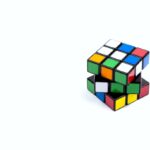Are you ready to uncover the truth about intelligence tests? In this article, we delve into the fascinating world of cognitive measurements and psychometric assessments to demystify the facts surrounding intelligence tests. As a seasoned educational psychologist and research consultant, I bring over a decade of experience and expertise to shed light on the purpose, accuracy, and impact of these tests on individual development. Join me as we unravel the mysteries and explore the undeniable importance of intelligence tests.

Facts About Intelligence Tests
Intelligence tests have long been a subject of interest and controversy in the fields of psychology and education. These tests are designed to measure an individual’s capacity to make abstractions, learn, and deal with novel situations. Commonly referred to as intelligence quotient (IQ) tests, their goal is to quantify a person’s general intelligence factor, known as “g”. So, let’s delve into the fascinating facts about intelligence tests, demystifying their purpose, accuracy, and impact on individual development.
Variations in Intelligence Tests
One of the most important things to understand about intelligence tests is that they can take different forms. Some tests assess verbal abilities, such as vocabulary and comprehension, while others focus on non-verbal skills like visual-spatial reasoning and problem-solving. This variation allows for a comprehensive evaluation of different cognitive abilities. By examining a range of skills, intelligence tests provide a holistic assessment of an individual’s intellectual capabilities.
The wide range of skills assessed in intelligence tests allows for a comprehensive evaluation of an individual’s cognitive abilities. These tests go beyond measuring simple IQ scores, providing a more nuanced understanding of a person’s intellectual strengths and weaknesses.
Standardization and Norm-Referencing
Intelligence tests are standardized and norm-referenced, which means that the performance of an individual is compared to that of a representative sample of people of the same age group. By establishing norms, these tests can provide insight into how an individual’s performance compares to their peers. This information can be valuable for identifying areas of strengths and weaknesses and informing educational and intervention strategies.
However, it is important to recognize that norms and standards can change over time. Intelligence testing has evolved, and new versions of tests are developed to ensure accurate and relevant assessments. This highlights the dynamic nature of intelligence testing and the need to keep up with advancements in the field.
The standardization and norm-referencing of intelligence tests allow for meaningful comparisons of an individual’s performance. However, it’s important to remember that these norms can change over time, reflecting the evolving understanding of intelligence and the development of new assessment tools.
Widely Used Intelligence Tests
Several intelligence tests have gained prominence in the field of psychology and education. The Stanford-Binet Intelligence Scale and the Wechsler scales are among the most widely used instruments. The Stanford-Binet test was one of the earliest IQ tests developed, and it has undergone numerous revisions to ensure its validity and reliability. The Wechsler scales, on the other hand, are a series of tests tailored for different age groups, providing a comprehensive assessment of intellectual abilities.
These well-established tests have demonstrated their usefulness in identifying intellectual strengths and weaknesses, providing valuable information for educational and clinical purposes.
The Stanford-Binet Intelligence Scale and the Wechsler scales are highly respected intelligence tests that have been refined over time. Their widespread use is a testament to their reliability and ability to provide meaningful insights into an individual’s intellectual abilities.
Strengths and Weaknesses of Intelligence Tests
While intelligence tests have proven valuable in many contexts, it is essential to acknowledge their strengths and weaknesses. These tests provide a standardized and objective measurement of an individual’s cognitive abilities, making them useful tools for identifying intellectual strengths and weaknesses. They can also assist in identifying individuals who may benefit from additional educational support or specialized intervention.
However, intelligence tests have limitations. They provide a snapshot of a person’s abilities at a specific point in time and may not capture the entirety of an individual’s intelligence. Factors such as test anxiety, cultural bias, and individual variability can influence test performance. Moreover, intelligence tests predominantly focus on cognitive abilities and may not capture other important aspects of human intelligence, such as emotional intelligence or creativity.
While intelligence tests offer valuable insights into cognitive abilities, it’s crucial to recognize their limitations. These tests provide a snapshot of intellectual capabilities and may not fully capture the complexities of human intelligence. Factors like test anxiety and cultural bias can also impact test performance.
Evolution of Intelligence Testing
The history of intelligence testing is a fascinating journey that has shaped our understanding of human abilities. Alfred Binet, a pioneering psychologist, is credited with developing the first IQ test in the early 20th century. His aim was to identify children who might struggle in school and provide them with appropriate support. Binet recognized that intelligence is multifaceted and cannot be reduced to a single numerical score.
Since Binet’s groundbreaking work, intelligence testing has evolved significantly. Modern tests have incorporated advances in cognitive psychology, statistical analysis, and psychometric principles. Researchers and practitioners continue to refine and improve intelligence tests to ensure their accuracy and relevance in our rapidly changing world.
The evolution of intelligence testing is a testament to the ongoing commitment to refine these assessments. From Alfred Binet’s pioneering work to the advancements in cognitive psychology, intelligence tests have come a long way in providing accurate and meaningful assessments of intellectual abilities.
In conclusion, understanding the facts about intelligence tests is essential for realizing their value and limitations. These tests play a crucial role in assessing cognitive abilities, identifying strengths and weaknesses, and guiding educational and intervention strategies. By acknowledging their purpose, variability, and evolution, we can navigate the complexities of intelligence testing and empower individuals to reach their full potential.
By recognizing the purpose, variability, and evolution of intelligence tests, we can unlock their true potential in guiding individual development and fostering a comprehensive understanding of cognitive abilities.
You may be curious to discover fascinating facts about intelligence that could enlighten your understanding and broaden your perspective. If you are intrigued by the subject and eager to explore further, click here to delve into a collection of intriguing insights and enlightening information. The link will transport you to a page filled with sought-after knowledge on the topic of intelligence: facts about intelligence. Prepare to be enlightened!
Facts about intelligence tests! Did you know that there are some intriguing intelligence test facts that you may not be aware of? Prepare to be amazed as you delve into the world of intelligence testing! First, let’s explore some interesting intelligence test facts. Have you ever wondered how intelligence tests came to be? Well, you’re in for a treat! Click here to uncover some fascinating intelligence test facts: intelligence test facts.
Now, if you thought those facts were intriguing, hold on tight because we have even more captivating information to share with you! Get ready to be blown away by these intelligence test interesting facts. Did you know that intelligence tests can actually measure different types of intelligence? It’s true! Click here to discover some mind-blowing intelligence test interesting facts: intelligence test interesting facts.
As you can see, there is so much more to intelligence tests than meets the eye. Don’t miss out on the chance to expand your knowledge and gain a deeper understanding of this fascinating subject. Start clicking those links and uncover the hidden world of intelligence test facts and interesting tidbits!
FAQ
Question 1:
What is the purpose of intelligence tests?
Answer 1:
Intelligence tests are designed to measure an individual’s capacity to make abstractions, learn, and deal with novel situations. They assess intellectual abilities and provide an indication of general intelligence.
Question 2:
What are intelligence tests also known as?
Answer 2:
Intelligence tests are also known as intelligence quotient (IQ) tests. They provide a numerical score that represents an individual’s intelligence level.
Question 3:
Which skills do intelligence tests assess?
Answer 3:
Intelligence tests can be verbal or non-verbal, depending on the skills they assess. Verbal tests measure language-based abilities, while non-verbal tests assess problem-solving and spatial reasoning skills.
Question 4:
What are some widely used intelligence tests?
Answer 4:
The most widely used intelligence tests include the Stanford-Binet Intelligence Scale and the Wechsler scales. These tests have been extensively researched and norm-referenced to provide reliable and valid assessments of intelligence.
Question 5:
What are the strengths and weaknesses of intelligence tests?
Answer 5:
Intelligence tests have strengths in measuring general intelligence and predicting academic success. However, they have important weaknesses, such as potential cultural bias, limited scope in assessing creativity, and the inability to measure certain types of intelligence, such as emotional intelligence.
- Unveiling the Enigma: Mansoureh Khojasteh Bagherzadeh’s Public Appearances & Private Life in Iran - July 18, 2025
- Unveiling the Mystery: Mansoureh Khojasteh Bagherzadeh’s Husband: A Rare Glimpse into a Private Life - July 18, 2025
- Unveiling Masoud Khamenei’s Mother: Power, Influence, and Iran’s Future - July 18, 2025
















